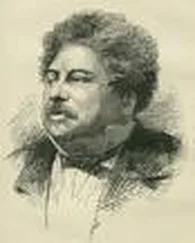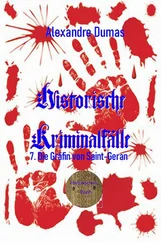Alexandre Dumas - Karl Ludwig Sand
Здесь есть возможность читать онлайн «Alexandre Dumas - Karl Ludwig Sand» — ознакомительный отрывок электронной книги совершенно бесплатно, а после прочтения отрывка купить полную версию. В некоторых случаях можно слушать аудио, скачать через торрент в формате fb2 и присутствует краткое содержание. Жанр: literature_19, foreign_antique, foreign_prose, на английском языке. Описание произведения, (предисловие) а так же отзывы посетителей доступны на портале библиотеки ЛибКат.
- Название:Karl Ludwig Sand
- Автор:
- Жанр:
- Год:неизвестен
- ISBN:нет данных
- Рейтинг книги:3 / 5. Голосов: 1
-
Избранное:Добавить в избранное
- Отзывы:
-
Ваша оценка:
- 60
- 1
- 2
- 3
- 4
- 5
Karl Ludwig Sand: краткое содержание, описание и аннотация
Предлагаем к чтению аннотацию, описание, краткое содержание или предисловие (зависит от того, что написал сам автор книги «Karl Ludwig Sand»). Если вы не нашли необходимую информацию о книге — напишите в комментариях, мы постараемся отыскать её.
Karl Ludwig Sand — читать онлайн ознакомительный отрывок
Ниже представлен текст книги, разбитый по страницам. Система сохранения места последней прочитанной страницы, позволяет с удобством читать онлайн бесплатно книгу «Karl Ludwig Sand», без необходимости каждый раз заново искать на чём Вы остановились. Поставьте закладку, и сможете в любой момент перейти на страницу, на которой закончили чтение.
Интервал:
Закладка:
On the 18th of June, at eight o’clock in the evening, he arrived upon the field of battle at Waterloo, On the 14th of July he entered Paris.
On the 18th of December, 1815, Karl Sand and his brother were back at Wonsiedel, to the great joy of their family. He spent the Christmas holidays and the end of the year with them, but his ardour for his new vacation did not allow him to remain longer, and an the 7th of January he reached Erlangen. Then, to make up for lost time, he resolved to subject his day to fixed and uniform rules, and to write down every evening what he had done since the morning. It is by the help of this journal that we are able to follow the young enthusiast, not only in all the actions of his life, but also in all the thoughts of his mind and all the hesitations of his conscience. In it we find his whole self, simple to naivete, enthusiastic to madness, gentle even to weakness towards others, severe even to asceticism towards himself. One of his great griefs was the expense that his education occasioned to his parents, and every useless and costly pleasure left a remorse in his heart. Thus, on the 9th of February 1816, he wrote: —
“I meant to go and visit my parents. Accordingly I went to the ‘Commers-haus’, and there I was much amused. N. and T. began upon me with the everlasting jokes about Wonsiedel; that went on until eleven o’clock. But afterwards N. and T. began to torment me to go to the wine-shop; I refused as long as I could. But as, at last, they seemed to think that it was from contempt of them that I would not go and drink a glass of Rhine wine with them, I did not dare resist longer. Unfortunately, they did not stop at Braunberger; and while my glass was still half full, N. ordered a bottle of champagne. When the first had disappeared, T. ordered a second; then, even before this second battle was drunk, both of them ordered a third in my name and in spite of me. I returned home quite giddy, and threw myself on the sofa, where I slept for about an hour, and only went to bed afterwards.
“Thus passed this shameful day, in which I have not thought enough of my kind and worthy parents, who are leading a poor and hard life, and in which I suffered myself to be led away by the example of people who have money into spending four florins – an expenditure which was useless, and which would have kept the whole family for two days. Pardon me, my God, pardon me, I beseech Thee, and receive the vow that I make never to fall into the same fault again. In future I will live even more abstemiously than I usually do, so as to repair the fatal traces in my poor cash-box of my extravagance, and not to be obliged to ask money of my mother before the day when she thinks of sending me some herself.”
Then, at the very time when the poor young man reproaches himself as if with a crime with having spent four florins, one of his cousins, a widow, dies and leaves three orphan children. He runs immediately to carry the first consolations to the unhappy little creatures, entreats his mother to take charge of the youngest, and overjoyed at her answer, thanks her thus: —
“Far the very keen joy that you have given me by your letter, and for the very dear tone in which your soul speaks to me, bless you, O my mother! As I might have hoped and been sure, you have taken little Julius, and that fills me afresh with the deepest gratitude towards you, the rather that, in my constant trust in your goodness, I had already in her lifetime given our good little cousin the promise that you are fulfilling for me after her death.”
About March, Sand, though he did not fall ill, had an indisposition that obliged him to go and take the waters; his mother happened at the time to be at the ironworks of Redwitz, same twelve or fifteen miles from Wonsiedel, where the mineral springs are found. Sand established himself there with his mother, and notwithstanding his desire to avoid interrupting his work, the time taken up by baths, by invitations to dinners, and even by the walks which his health required, disturbed the regularity of his usual existence and awakened his remorse. Thus we find these lines written in his journal for April 13th:
“Life, without some high aim towards which all thoughts and actions tend, is an empty desert: my day yesterday is a proof of this; I spent it with my own people, and that, of course, was a great pleasure to me; but how did I spend it? In continual eating, so that when I wanted to work I could do nothing worth doing. Full of indolence and slackness, I dragged myself into the company of two or three sets of people, and came from them in the same state of mind as I went to them.”
Far these expeditions Sand made use of a little chestnut horse which belonged to his brother, and of which he was very fond. This little horse had been bought with great difficulty; for, as we have said, the whole family was poor. The following note, in relation to the animal, will give an idea of Sand’s simplicity of heart: —
“19th April “To-day I have been very happy at the ironworks, and very industrious beside my kind mother. In the evening I came home on the little chestnut. Since the day before yesterday, when he got a strain and hurt his foot, he has been very restive and very touchy, and when he got home he refused his food. I thought at first that he did not fancy his fodder, and gave him some pieces of sugar and sticks of cinnamon, which he likes very much; he tasted them, but would not eat them. The poor little beast seems to have same other internal indisposition besides his injured foot. If by ill luck he were to become foundered or ill, everybody, even my parents, would throw the blame on me, and yet I have been very careful and considerate of him. My God, my Lord, Thou who canst do things both great and small, remove from me this misfortune, and let him recover as quickly as possible. If, however, Thou host willed otherwise, and if this fresh trouble is to fall upon us, I will try to bear it with courage, and as the expiation of same sin. Meanwhile, O my Gad, I leave this matter in Thy hands, as I leave my life and my soul.”
Конец ознакомительного фрагмента.
Текст предоставлен ООО «ЛитРес».
Прочитайте эту книгу целиком, купив полную легальную версию на ЛитРес.
Безопасно оплатить книгу можно банковской картой Visa, MasterCard, Maestro, со счета мобильного телефона, с платежного терминала, в салоне МТС или Связной, через PayPal, WebMoney, Яндекс.Деньги, QIWI Кошелек, бонусными картами или другим удобным Вам способом.
Интервал:
Закладка:
Похожие книги на «Karl Ludwig Sand»
Представляем Вашему вниманию похожие книги на «Karl Ludwig Sand» списком для выбора. Мы отобрали схожую по названию и смыслу литературу в надежде предоставить читателям больше вариантов отыскать новые, интересные, ещё непрочитанные произведения.
Обсуждение, отзывы о книге «Karl Ludwig Sand» и просто собственные мнения читателей. Оставьте ваши комментарии, напишите, что Вы думаете о произведении, его смысле или главных героях. Укажите что конкретно понравилось, а что нет, и почему Вы так считаете.












